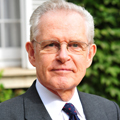What are the salient characteristics of populism? There’s disagreement on this point, since it can be studied from so many different angles. Nonetheless, we can define it in broad terms:
- The fundamental analysis revolves around two categories: “normal folk” versus “the elite,” which will have its own nomenclature in every country. “We” are the people and “they” are the ones who cheat, control and subjugate us, along with all of their supporters. These concepts are impossible to define in clearer terms because they don’t reflect objective realities.
- More than anything else, the divide is grounded on identity and emotion that stem from making a sharp distinction between “friend” and “enemy.”
- The body politic is a means of personalizing the malaise of an entire society, or at least a large portion of it. It’s made up of people who have lost their homes, who struggle to make ends meet, who live paycheck to paycheck, who go to schools full of first-generation immigrants. What begins as a generalized feeling of dissatisfaction eventually mutates into a positive feeling of belonging.
- There is no hierarchy in place to deal with citizen demands since these emerge from the people and we’re all equals. Hence, politicians will opportunistically decide when to address these based on the interests and means in each case. This is the difference between current populist movements and Marxism, for instance, since worker’s alienation is no longer the dominant theme.
- The general will should prevail. Since representative democracies use intermediate structures, such as representatives and political parties, the will of the people should be abided. Liberal institutions (the separation of powers, the neutrality of state institutions, the defense of political and media pluralism) are no longer useful.
- Populism is normally, although not necessarily, triggered by a charismatic leader who articulates the collective anxieties and aspirations of the people.
- Intellectuals and experts are viewed with suspicion because of their ties with the elite. Their words are perceived as skewed and biased, and at odds with the interests of the body politic.
- The movement plays out through a continuous popular mobilization. Actions are channeled through provocation and protest. Dialogue no longer makes sense since it is controlled by the elite.
- Anyone who disagrees with the body politic should be spurned, and if necessary, intimidated. Those who try to stabilize political institutions will hinder the advancement of populism.
- The truthfulness of words no longer matter; the message that they transmit is what counts. Communication is a homogenizing tool, which is why control of the media becomes so important.
- Populist politics are based on emotion to generate a feeling of affective identification.
- Conflict reigns in populist strategies. The liberal democratic system has always tried to conceal conflict, either because the elite don’t show signs of interest, because they don’t know how to tackle it, or because it isn’t considered media-worthy. In populist movements, that pattern is turned in its head: now it’s important to report every conflict, accentuate it and wrap it up tightly in an emotionally charged bundle.
- Populism isn’t necessarily xenophobic. Problems relating to ethnic minorities or immigrants are sometimes, but not always, relevant.



that was great…thanks
BookMyColleges gives you an opportunity to explore & select the top MBA/Management Colleges across India & abroad at on click. You may apply to multiple colleges through one application form with discounted price.
BookMyColleges mission is to provide complete satisfaction and to help our Client’s, Institutes, Students to achieve prosperity and peace of mind through our Products & Services.
I am a student and I agree completely with this article.
Thank you